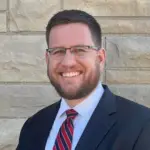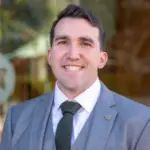Three Cheers, Two Fears
A few weeks ago, at the direction of President Trump, Russ Vought, the director of the Office of Management and Budget (OMB), published a memo instructing executive branch agencies to cease so-called racial sensitivity training that is based on Critical Race Theory (CRT). The memo also banned training that employs the concepts of “White Privilege,” or “any other training or propaganda effort that teaches or suggests either… that the United States is an inherently racist or evil country or… that any race or ethnicity is inherently racist or evil.” Vought added that these training seek to “undercut our core values as Americans and drive division within our workforce.” Quite right. Since the release of Vought’s memo lawmakers, most notably Senator Josh Hawley (R-MO) have taken notice and encouraged a full audit of relevant federal agency training programs. In an interview, Hawley wondered aloud if federal law had been violated and pledged to personally inquire into the matter. Later in September, Trump issued an expansion order that applied the same restrictions to federal contractors.
By all accounts, federal CRT-based trainings came to the attention of the Trump administration after Christopher Rufo of the Discovery Institute began reporting his findings, most notably on Tucker Carlson Tonight and in articles at the City Journal. Perhaps the most shocking amongst Rufo’s reports is the case of Sandia National Laboratories, a nuclear weapons research facility, which in recent days held a mandatory “retreat” called “White Men’s Caucus on Eliminating Racism, Sexism, and Homophobia in Organizations.” Per Rufo, only the white males at Sandia were required to attend and engage in woke rituals (e.g. admitting complicity in systemic racism, etc.). But this instance is just the tip of the iceberg. Rufo claims that a litany of federal agencies, including the Treasury Department and the Federal Bureau of Investigation, are performing similar trainings.
Three cheers for the President, Vought, and Rufo! This was the right thing to do. That being said, whilst the OMB memo is welcome news and a worthy recognition of Rufo’s invaluable, fearless journalism— perhaps, the only example of such in America right now— my resultant worry is twofold.
First, given the capacity for adaptability of critical social theories, the order may have been necessary but will ultimately prove insufficient. The explicit use of the buzz words (or “divisive concepts”) can be gotten around. I will return to this momentarily.
My second fear is that the denunciation of CRT by the Trump administration will backfire. Indeed, there are already signs that it has. The McCarthyism narrative, as I call it, is already taking shape both within and without the church. The emergence of this narrative is not surprising. The proponents of CRT have only become more entrenched since the OMB announcement. In some ways, this is not a bad thing. The gloves need to come off to some extent. I have already identified elsewhere what I believe is an irreconcilable divide in America’s major Evangelical denominations over this. I predict denominational split. Hopefully I am wrong.
In any case, the Red Scare is already being invoked in order to discredit well-placed concern over the influence of CRT in the federal government. Jemar Tisby, who’s new book How to Fight Racism will hit shelves in January, tweeted in response to the Trump order,
“We watched almost in slow motion over the last few years as some fundamentalist Christians turned Critical Race Theory into the latest label to libel racial justice advocates. Now we’re seeing it become a kind of “Red Scare” in the federal government.”
Ekemini Uwan, of the Truth’s Table podcast, claimed the White House memo was simply further, unequivocal evidence that we are living under a “fascist regime.” Matthew Arbo, a professor at Oklahoma Baptist University and a regular soldier of the civility brigade, opted for a combination of condescension, gaslighting, and mockery of his fellow Christians who are concerned about CRT.
Uwan’s (admittedly predictable) comment is fascinating for a few reasons. First, it shows the power over the popular imagination of convenient historical analogies that are constantly perpetuated by think pieces in leading publications. The only historical vantage point anyone seems to have is that of 1920s and 1930s Germany (i.e. the last days of the Weimar Republic or the early days of the Third Reich). Niall Ferguson has relentlessly and rightly criticized cultural commentators (especially Andrew Sullivan) for monotonous mentions of 20th century European conflict ever since the populist backlash. In similar fashion, Tom Holland has pleaded with American’s to stop casting itself as Rome and, more importantly, to stop inserting itself into the final act of Edward Gibbon’s history of its decline.
Second, Uwan’s hot take reminds us that most of the same people who invoke the all-too-convenient analogy of 20th century Europe operate under an erroneous working definition of “fascism”— a unique historical phenomenon, under particular, preexisting political conditions and unlikely to be repeated. In reality, “fascism” is nothing more than a “political F-bomb,” as Christian Caryl aptly described it in a 2014 Foreign Policy article. Its an insult, and insults (especially political ones) do not require much historical nuance to nevertheless be effective. Eliah Bures, writing for the same publication just last November, concurred. The term is now almost completely devoid of meaning, other than the expression of distaste for whoever is on the receiving end of the accusation. Best case scenario, it functions as a loose synonym for totalitarianism. Even the more hysterical takes on the populist movements that swept across the west in 2016 were forced to admit that these did not, in fact, constitute a fascist resurgence.
And finally, Uwan’s hot take evidences the hypocrisy of the McCarthyism/Red Scare invocation. One side can appeal to horrifying historical instances of systematic mass murder, but the other cannot. This also exposes an imbalance of cultural memory in the west— a favorite subject of critical theorists. Nazism is (rightly) remembered for its atrocities, but Marxism— or more precisely, the Stalinism of Soviet Russia— is not. Marxism is simply dismissed as a scare word employed by conspiracy theorists and/or those who want to avoid awkward conversations, those who do not want to get real about their white privilege.
Feeding the gaslighting/McCarthyism deflection, mainstream media sources characterized the trainings as “sensitivity training” or “diversity education,” or “racial awareness training.” There has been a concerted effort by all but a few to avoid mention of the term “Critical Race Theory,” or even “White Fragility” and “White Privilege.” This move is by no means unique to CNN and MSNBC. A recent article at Mere Orthodoxy managed to review Ibram X. Kendi’s How To Be An Antiracist without ever mentioning “Critical Race Theory.”
Slippery Slope
The question of the presence of CRT in major institutions, from Washington D.C. to Silicon Valley, is incontrovertible. Now, especially given that its an election year, its validity and influence will become a partisan issue. Trump’s order has been cast by the media as nothing more than a pandering to his allegedly bigoted base, a dog-like obedience to Fox News talking heads, and a knee-jerk reaction to the “browning” of America. Likewise, Christian proponents of CRT’s use embrace the “pandering” narrative of Trump’s order and trot out the notorious and specious statistic that claims 81% of Evangelicals voted for the president in an attempt to substantiate the claim. For good measure, some of these “thought leaders” claim that the “obsession” with CRT by conservative Evangelicals is just the latest iteration of white obfuscation in race discussions. All that to say, the situation has only gotten more complicated in the past few weeks.
As I alluded to above, critical social theories as a class can be slippery, and this is particularly true of Critical Race Theory (CRT), by both design and function. This bodes ill for proposed White House efforts to audit federal training programs. The bestsellers like Robin DiAngelo’s White Fragility, Ibram X. Kendi’s How To Be An Antiracist, or Renni Eddo-Lodge’s Why I Am No Longer Talking to White People About Race barely, if it all (as in the case of DiAngelo) explicitly mention “Critical Race Theory.” Their indexes and bibliographies are scant, citing to only a few primary sources that would, after some digging, give you a clue as to their ideological presuppositions. But the ideas, unmistakably drawn from CRT (and Queer Theory, etc.) are there. A perusal of these books in conjunction with popular-level Christian works on the subject like David Swanson’s Rediscipling the White Churchor Daniel Hill’s White Awake evidence perfectly the truth of Peter Boghossian’s “idea laundering” thesis.
The vocabulary, framework, and concepts of CRT present (sometimes covertly) in these works have been laundered clean. There is usually two or three degrees of separation between the original source of the idea and the style in which it is presented in these contemporary treatments. The untrained eye may gloss right over them, and the authors themselves (in the Christian context) are left with plausible deniability.
This dynamic will only be compounded as the McCarthyism narrative settles in. In some ways, we have come full circle to where we were in 2019 in the days surrounding Resolution 9. In the days since, the conversation has moved from denial to justification and back to (partial) denial, if not dismissal, again.
This is why I have consistently held that whilst a threshold understanding of false ideologies presently challenging the church is necessary for pastors, their priority should be that of rooting themselves and the people under their care in true, historical, confessional, orthodox theology. They should focus on shoring up their doctrinal distinctives such that they can weather anystorm. Founders Ministries has instinctually recognized the necessity of this progression. By What Standard was the sounding of the alarm about certain dangers facing the church. The focus of Wield the Sword is shoring up doctrine in a holistic fashion such that any storm can be withstood.
All Not So Quiet on the Western Front
For those of us who have worked to raise awareness about critical theories, the easy part is ending abruptly. We now face a war on two fronts. As history shows us— I am resisting a mid-20th century Europe analogy here— this is a precarious position to be in.
First, we must continue to raise awareness in a careful, earnest, and, as overused as the word is, nuanced way. Second, we must not allow ourselves to slip into hyperbole, and we must correct hysterical commentary on the issue. At all times, we must pursue accuracy in our defense of the truth, the two necessarily go together, despite what the authors of the 1619 Project or Alexandria Ocasio-Cortez may claim.
Now that CRT is receiving so much exposure—a truly surreal turn of events for someone who has been reading about this stuff for several years and often worried if he had himself entered into a conspiracy theory— the temptation for people will be to see its influence everywhere and in everything. To be fair, as my friend Neil Shenvi is fond of saying, once you see it, you cannot unsee it. It is truly astounding how influential these ideas are; how deep-seated in certain segments of our society, how all-consuming for certain quadrants of the population, they are. It would be easy to feel like the walls are closing in on western civilization— our schools, families, and governmental institutions. To be sure, critical social theories are a real and present threat to western society if for no other reason than that said theories are preoccupied with the problematization and dismantlement of western culture.
On the other hand, it is not literally everywhere. It is often said that CRT is itself conspiratorial. This is, in my opinion, an accurate description. Anything that offers a unitary explanation for human activity, and then implicates everyone in the outcome, is on its way to conspiracy status. That CRT and the niche ideas that are intricate to it (e.g. White Privilege and White Fragility) are unfalsifiable should also raise red flags. (No, that was not a Red Scare reference. Yes, I realize that CRT dismisses the standard of falsifiability as a western, white, male construct conjured up to suppress non-western, indigenous ways of knowing.)
And yet, we cannot allow ourselves to lapse into conspiracy theories about this conspiratorial ideology. It will do us no good to see it where it is not. It will help no one to offer half-baked representations of it accompanied by even doughier commentary. When dealing with critical theories, the bread and butter of which is broad and unsubstantial generalizations like “When I see disparities, I see racism,” precision is our friend (namely, because precision is the friend of truth).
We are going to have enough accusations of incivility and libel, for eroding the Christian “public witness,” on our hands merely for espousing the truth over and against falsehood when it is not publicly convenient to do so. We, therefore, need not compound the issue for ourselves by being careless in our thought. The problematic takes out there that I have in mind generally fall into one of two classes. Either they are intellectually and conceptually lazy, and sometimes bordering on conspiratorial, or they engage in friendly fire. The former gets critical theory wrong and the latter makes every man an island of self-tailored principle.
No, Black Lives Matter is not the leopard from Revelation 13:2. I am generally disinterested in eschatology— I like to say that there is a reason that the only New Testament books on which Calvin did not write commentaries were 2 and 3 John, and Revelation— but I know this much.
No, intersectionality is not the end game of CRT, as I have seen some erroneously suggest. Such a claim makes no conceptual sense. Intersectionality is, as I’ve argued, a mid-level theory, a sensibility, that, in my opinion, can have no existence outside of the assumptions, methods, and aspirations of CRT. Kimberlé Crenshaw’s creation is meant to cultivate greater awareness of difference and broader conceptions of oppression, and better equip CRT analysis of relative power dynamics. This is not an end goal. It is the means to an end. The end goal is liberation from hegemonic constraints and the emergence of some amorphous, equitable utopia.
Just as we cannot be lazy in our thinking regarding critical theory concepts, we also cannot afford to allow our excitement and zeal to yield friendly fire casualties.
Concern for social issues is not tantamount to being a pseudo-Marxist. Likewise, someone is not woke-adjacent just because they approach critical theory on its own terms, or because they insist on being apolitical, or endeavor to be fair to their interlocutors. We must make sure, both within and without the Twitterverse, that we do not throw around the pejorative of “cultural Marxist,” even against those who are overly obsessed with the latest pressing cultural issue, as indiscriminately as do the woke with accusations of “racism.”
As Carl Trueman has humorously put it,
“To deny the pre-political, to focus on institutions, to condemn anyone whose church isn’t constantly addressing the latest fad of the 24-hour news cycle as somehow sinning—that is to mimic the world’s values, the world’s practices, and the world’s cheap outrage. In fact, calling that kind of behavior cultural Marxism is to flatter it far too highly, implying a sophistication that half-baked cheap shots simply do not possess.”
It is my contention that one of the best ways to fight the scourge of CRT is to insist on reasoned, logical, sustained, principled, evidentiary arguments— basically all the things the Smithsonian erroneously labels “whiteness”— for one’s position contra our modern day race-mongers. In a similar way, the best way to fight the revolutionaries is to regularly invoke the transcendent things— the law of God, the Gospel of Jesus Christ, and the communion of the saints— over and against the increasingly politicized things of this world and the false sense of immediacy present in seemingly every conversation.
The kind of belligerent fire breathing that I have witnessed on Twitter since the OMB announcement has been, by and large, counterproductive. Much of it has been hysterical, inaccurate, and indiscriminate. This is regrettable and will only make the realwork, to borrow a woke phrase, more difficult for the rest of us.
Hold Fast!
Critical theory represents a family of very, very bad ideas. CRT, Queer Theory, Critical Pedagogy, Postcolonial Theory, and all the rest spring from a common, poisoned well. The ideological ecosystem in which they were grown has historically proven its capacity for human suffering and societal confusion. More importantly, critical theories deny the transcendent, disparage (at least, our ability to ascertain non-politicized) objective truth, present an arid, lifeless explanation for human conduct that denies real moral agency, and foster a resentful attitude toward society— and, really, anything that comes to us as a given. Further, as I have argued before, the embrace of critical ideologies inhibits our ability to analyze real problems in the world, including but not limited to racism.
These ideas, for so many reasons— some of which I have tried to demonstrate— are incompatible with Christianity. As others have convincingly argued, critical social justice contains all the components of a religion. Christians cannot serve two masters. Nor can it supplement its own theology with the false religious convictions or explanations for the world.
All of this is true. But we must not panic. To be clear, I am not advocating for the very real influence, evidently destructive potential, and ideological bankruptcy, of critical theories to be downplayed. What I am arguing is that we stay the course.
Part of the reason that critical theories have gained so much ground, especially in the academy, is because Christians were resting on their laurels. It is natural to panic when you realize that you have been caught unawares. But we must resist this impulse. The information cascade effect of social media does not help. The feeling of being overrun by CRT is only compounded when it is the only thing trending on Twitter. One day you were fuzzy on the issue, and the next you are being bombarded with it.
Pastors may sense the need to play catch-up. This is partially true. But real competency in this area cannot be gained overnight, as anyone who has done the work will tell you. It will take time. There is no substitute for reading primary sources which, in this case, are often impenetrable and, frankly, boring. Congregants should not rush their pastors in this. Pastors should not abandon all other theological duties in pursuit of competency on the topic. They should not succumb to the culturally fabricated sense of urgency. Faithful, careful plodding is required now more than ever.
Another thing: do not let people convince you that taking the Theorists and their contemporary disciples at their word is somehow uncivil. On the contrary, it is fealty to the truth and honesty that leads us to do so. When Evangelical leaders say things that coincide with the prescriptions of CRT and the like and are consistent in usage and meaning with the same, it is not uncivil to hold them accountable. This is not tantamount to questioning their faith or eternal security. It is treating them like leaders.
The great thing about critical theory texts is that they tell you exactly what they mean, even if in jargon-laden fashion. If a leader espouses ideas that stink of the poisoned well of Theory, then the case is either 1) they really mean it, or 2) they have misunderstood the meaning of the ideas and lingo they are chanting and have been careless in the assessment of the same. In either case, whether for theological error— “heresy” is almost certainly too strong of a word and should be used sparingly— or laziness, accountability (especially for public statements) is in order.
In administering accountability, we must keep two things in mind. First, we must allow room, in a spirit of graciousness and hope for reconciliation, for those in theological error to return to the fold. We must be careful to fight the war on two fronts with integrity and precision, yes, but we must also offer an olive branch to the refuges of the ideological scourge we are presently facing. Many have been duped by it. Let us not be harsh with them. I argued recently that, per the “idea laundering” thesis, many Evangelicals who are dabbling in critical ideology do so either unintentionally (i.e. they are just talking like everyone else) or incompetently (i.e. they do not quite understand it). We must be sympathetic to this fact. Sympathy, however, is not the same as acquiescence or affirmation.
Second, on the flipside, it means that we must not waiver in our convictions. Judging public statements according to the rule of scripture and time-honored theological convictions drawn therefrom, is not unloving. It is supremely loving because the Truth is loving. Do not let people convince you that you are bigoted, intolerant, or anything else simply for refusing to waiver from the deposit of truth with which you have been entrusted.
Rod Dreher’s new, must-read book, Live Not By Lies, takes its title from the last message delivered by the dissident Alexandr Solzhenitsyn to the Russian people before he was exiled to the west by the Soviet government. Therein, Solzhenitsyn admitted that “to step out onto the square and shout out the truth, to say out loud what we think” might be too tall of an order for many. But he urged, “But let us at least refuse to say what we do not think!” This is the essence of what it means to live not by lies. It is as good advice as any for the present moment, especially for Christians.
Hold fast.





























